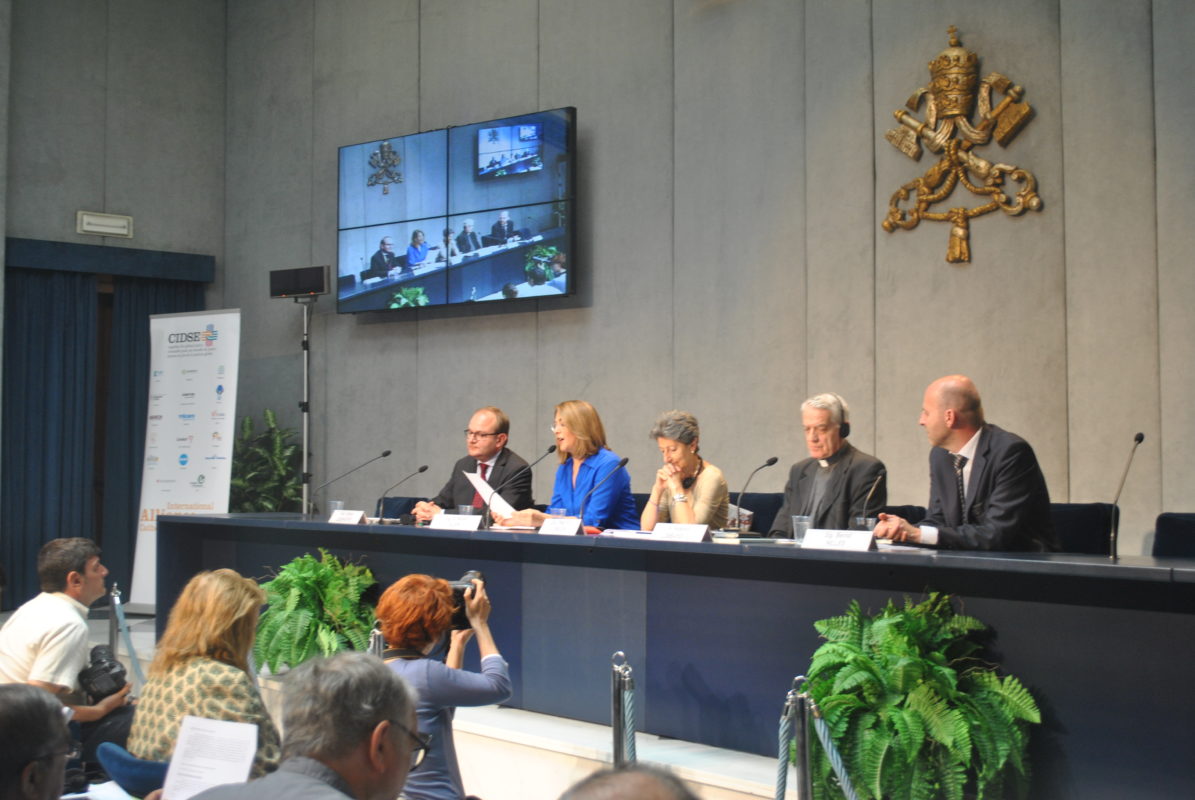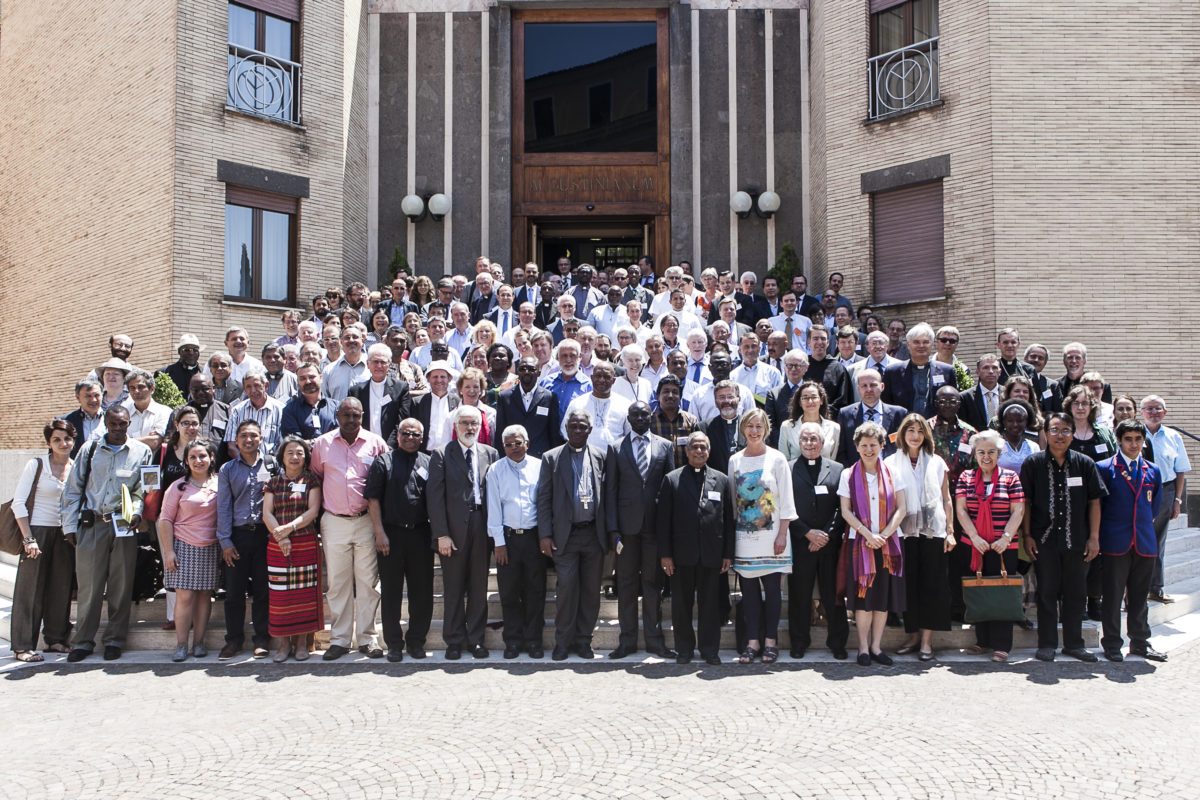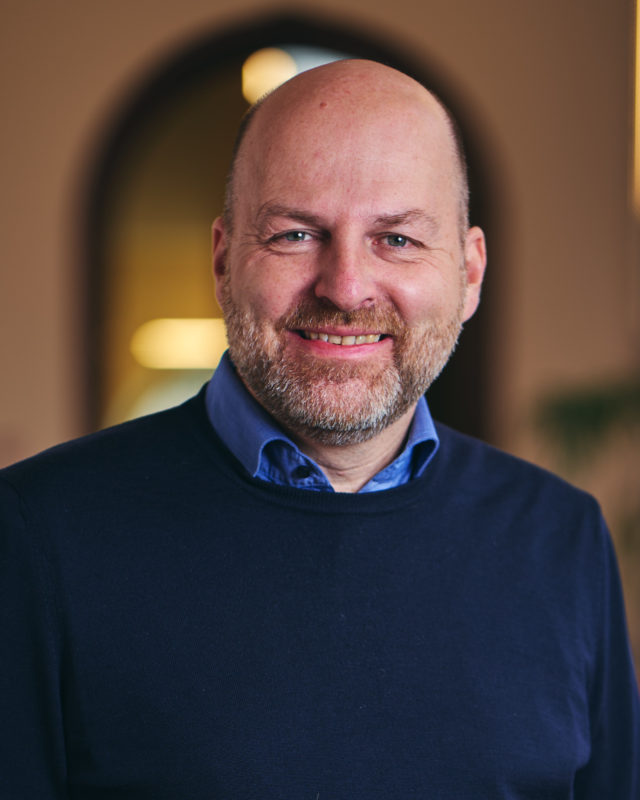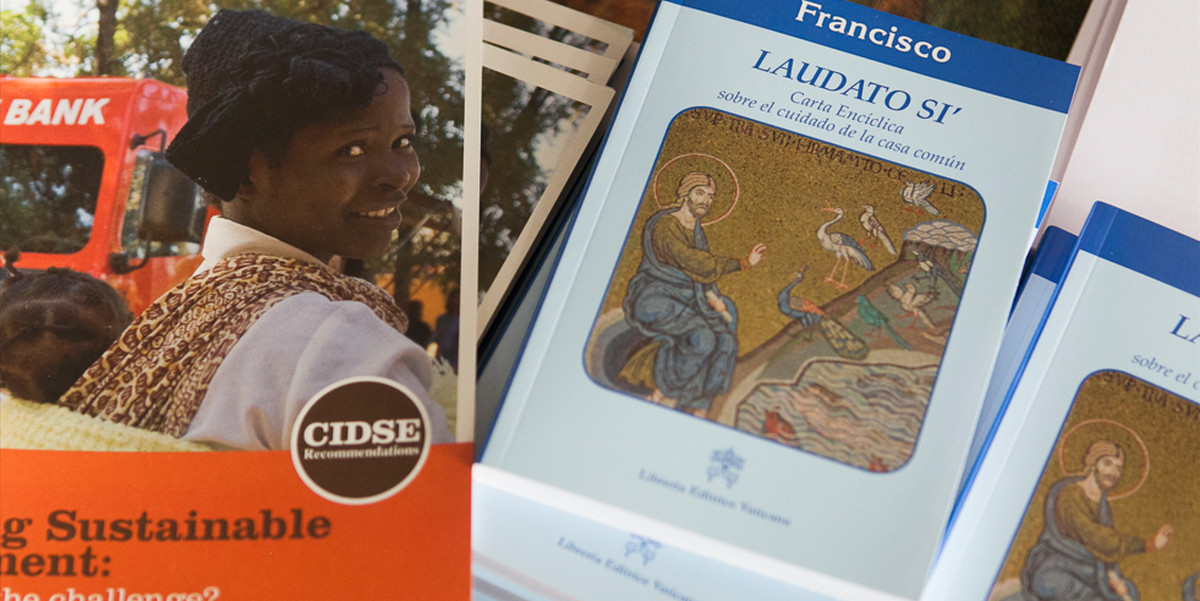Ten years ago, as part of its 50th anniversary celebrations, CIDSE organised a conference in Rome with the Pontifical Council for Justice and Peace titled “People and Planet First: the Imperative to Change Course”. The conference aimed to amplify the importance of Pope Francis’s landmark encyclical Laudato Si’ and to influence positively key global political discussions taking place in 2015.
In 2025, as CIDSE celebrates its 60th anniversary, we invited Bernd Nilles, CIDSE’s former Secretary General and current Director of Fastenaktion (CIDSE Swiss Member Organisation) to share his reflections on the importance of this encyclical and how it has guided CIDSE’s work since then.
In the wake of the 2008 global financial crisis, CIDSE began calling for a profound and systemic transformation – one that recognise the interlinked crises facing our Common Home: climate change, poverty, hunger, exclusion, inequality, and the exploitation of nature and its resources. These challenges, deeply embedded in political and economic systems, require more than incremental reforms. CIDSE responded by rethinking development, aimed at challenging and replacing the unsustainable economic model that dominates the world until today and denouncing false solutions.
In 2015 Pope Francis announced his intention to publish an encyclical that would speak directly to the need for social and environmental transformation. For CIDSE, this represented a historic opportunity to align its mission with a powerful, global call to action. That same year also saw a series of UN pivotal events: the Sustainable Development Summit in New York and the COP21 conference in Paris, where the landmark Paris Agreement was signed. These milestones made 2015 a turning point in global awareness and action on climate.
In the hope of positively influencing those major political conferences, Pope Francis published the encyclical Laudato Si’ in June 2015. This was a critical moment, as it was uncertain whether governments would be able to agree on new global development and climate agendas.

To help amplify Pope Francis’s messages among policymakers and the public, CIDSE co-organised an international conference with the Pontifical Council for Justice and Peace headed by Cardinal Turkson, titled “People and Planet First: the Imperative to Change Course”, preceded by a press conference of the Holy See.
Held in Rome, the conference featured prominent voices including among others climate scientist Ottmar Edenhofer, author and activist Naomi Klein, Cardinal Pietro Parolin, former Prime Minister of Ireland and UN Special Envoy for Climate Change Mary Robinson, and Enele Sopoaga, then Prime Minister of Tuvalu – one of the nations most threatened by rising sea levels caused by climate change. Both events brought widespread attention from international media and diplomatic missions, amplifying the urgent message of Laudato Si’.

Laudato Si’ is rich in wisdom, clarity, and moral urgency and it speaks to all people – believers and non-believers alike – with a universal appeal to care for the Earth and each other. Its open, inclusive tone and bottom-up approach created space for dialogue with all people of goodwill worldwide as well as collective action to address ecological and social injustice.
Pope Francis recognised and praised the tireless efforts of civil society in this work, writing: “We cannot fail to praise the commitment of international agencies and civil society organisations which draw public attention to these issues and offer critical cooperation, employing legitimate means of pressure.” (LSI.38) This acknowledgment brought renewed hope and affirmation to CIDSE and others advocating for justice.
The encyclical also emphasised the inextricable link between social and environmental injustice. The climate, as Pope Francis reminded us, is a common good – belonging to all and affecting all. Those most impacted by the climate crisis are often those least responsible for it. “When nature is viewed solely as a source of profit and gain,” he warned, “this has serious consequences for society… immense inequality, injustice, and acts of violence against the majority of humanity.” (LSI. 82)
“Looking back ten years, I think CIDSE helped the encyclical Laudato Si’ gain visibility and impact, but Laudato Si’ also helped and challenged CIDSE to continue working towards transformation and ‘rethinking development’ and adding sustainable lifestyles to its political agenda.”
Over the past ten years, CIDSE has worked tirelessly to amplify the message of Laudato Si’. The encyclical not only inspired the organisation’s advocacy efforts but also provided clear moral direction, reaffirming that CIDSE’s pursuit of social and environmental justice is grounded in Christian values and Catholic Social Teaching. It energised many Catholic actors by articulating a vision of justice that embraces simplicity, solidarity, and sustainability.
CIDSE took up Pope Francis’s call for “ecological conversion” via its initiative on sustainable lifestyles: “Change for the Planet, Care for the People”. CIDSE’s member organisations began rethinking the economic and social structures that perpetuate harm, working to build systems rooted in justice and care rather than exploitation and profit.
Yet today, on the 10th anniversary of Laudato Si’, Pope Francis’s vision faces renewed resistance. Political and economic forces – including fossil fuel and extractive industries – are gaining ground, environmental protections are being weakened, and billionaires are consolidating control over information and discourse. Refugees face rising hostility, solidarity is fading, and global peace remains elusive.
Despite these challenges, CIDSE remains hopeful. Inspired by Laudato Si’, we continue to believe that a future of peace, dignity, and well-being for all is possible – if we stay within the ecological boundaries of our planet, eliminate extreme inequalities, and foster solidarity, or what Pope Francis calls “tenderness among peoples.” We remain committed to walking the path of ecological conversion, systemic change, and integral human development because the cry of the Earth and the cry of the poor can no longer be ignored.
About the author:

Bernd Nilles has a long history of collaboration with CIDSE. From 1999 to 2005, he worked for Misereor, our German member organisation: first as a campaigner and then as a policy officer. From 2008 to 2017, he served as Secretary General of CIDSE. In 2015, he played an important role in the launch of Pope Francis’s encyclical Laudato si’. Since 2017, he has been Director of Fastenaktion, CIDSE’s Swiss member organisation.
From 2005 to 2008, he also worked for the government of the German Federal State of North Rhine-Westphalia. Bernd is a board member of CIDSE and Alliance Sud, and served on the board of Climate Action Network (CAN) Europe from 2015 to 2021.
Additional information:
Video: Looking back at the conference “People and Planet first: the Imperative to Change Course”, January 2016.
Photo credits : CIDSE and Fastenaktion

